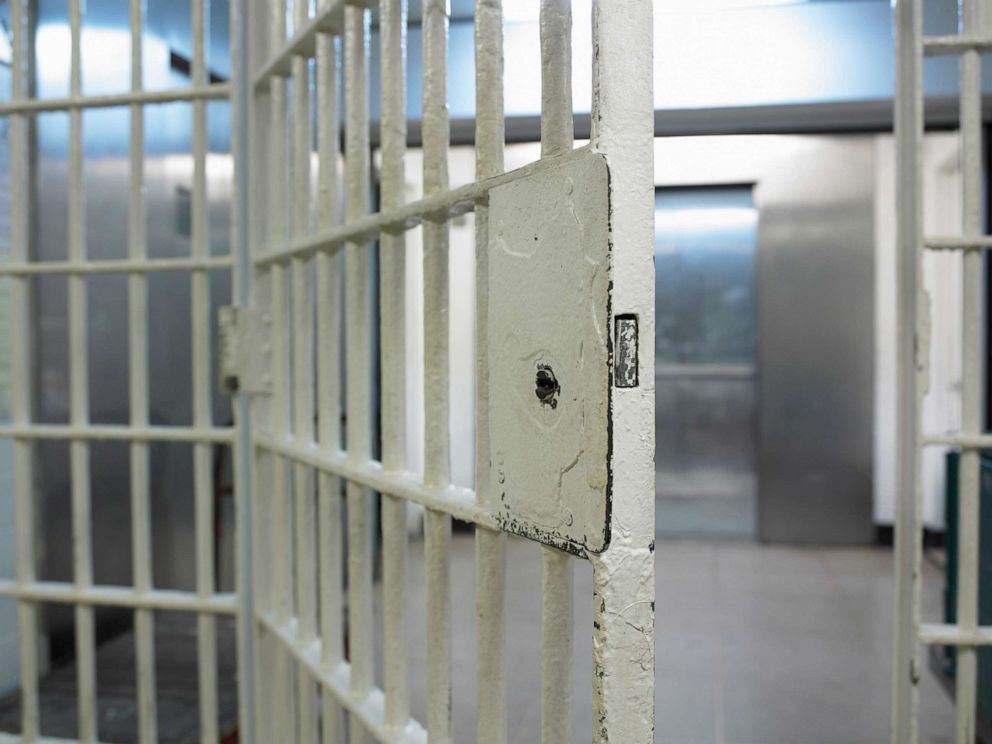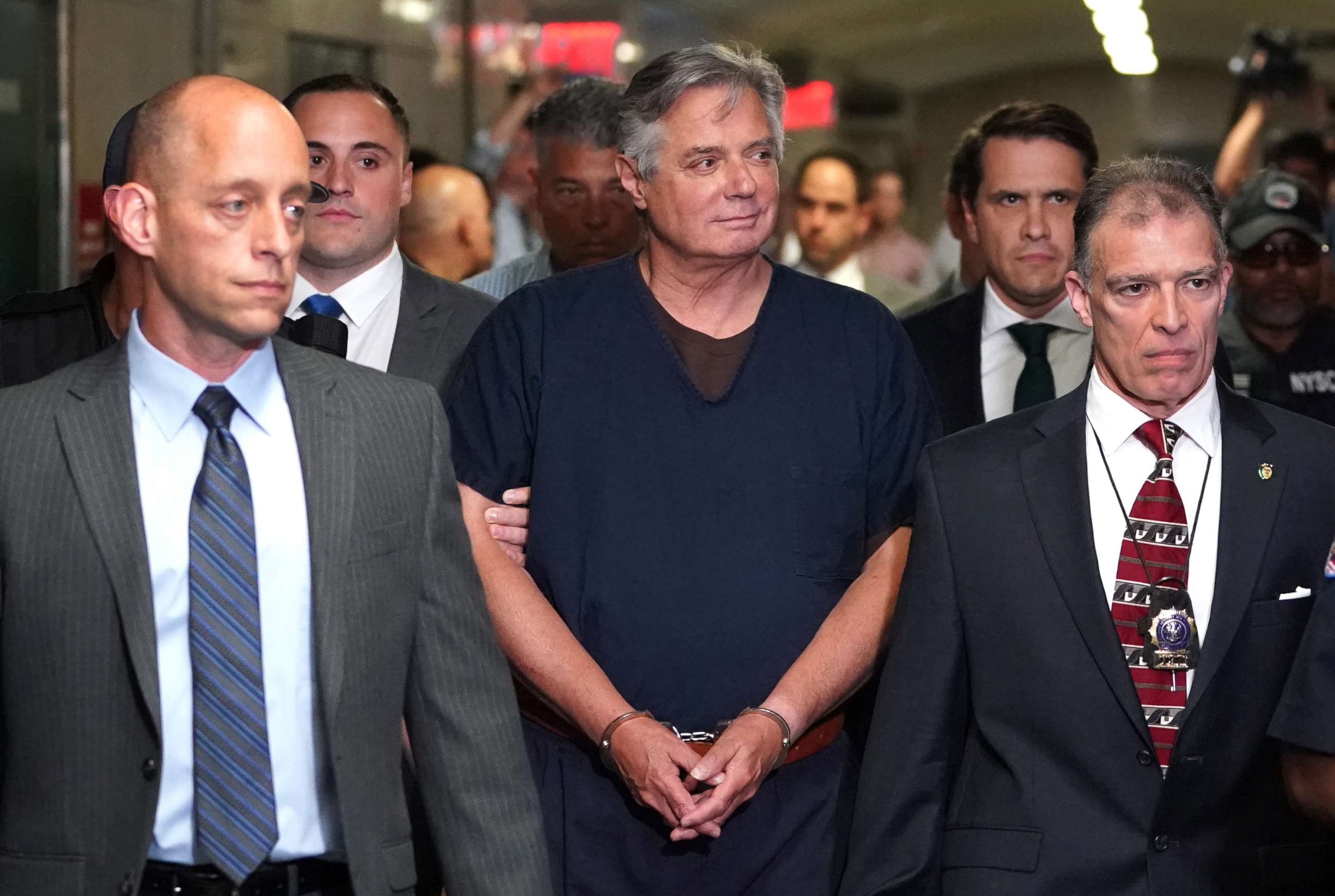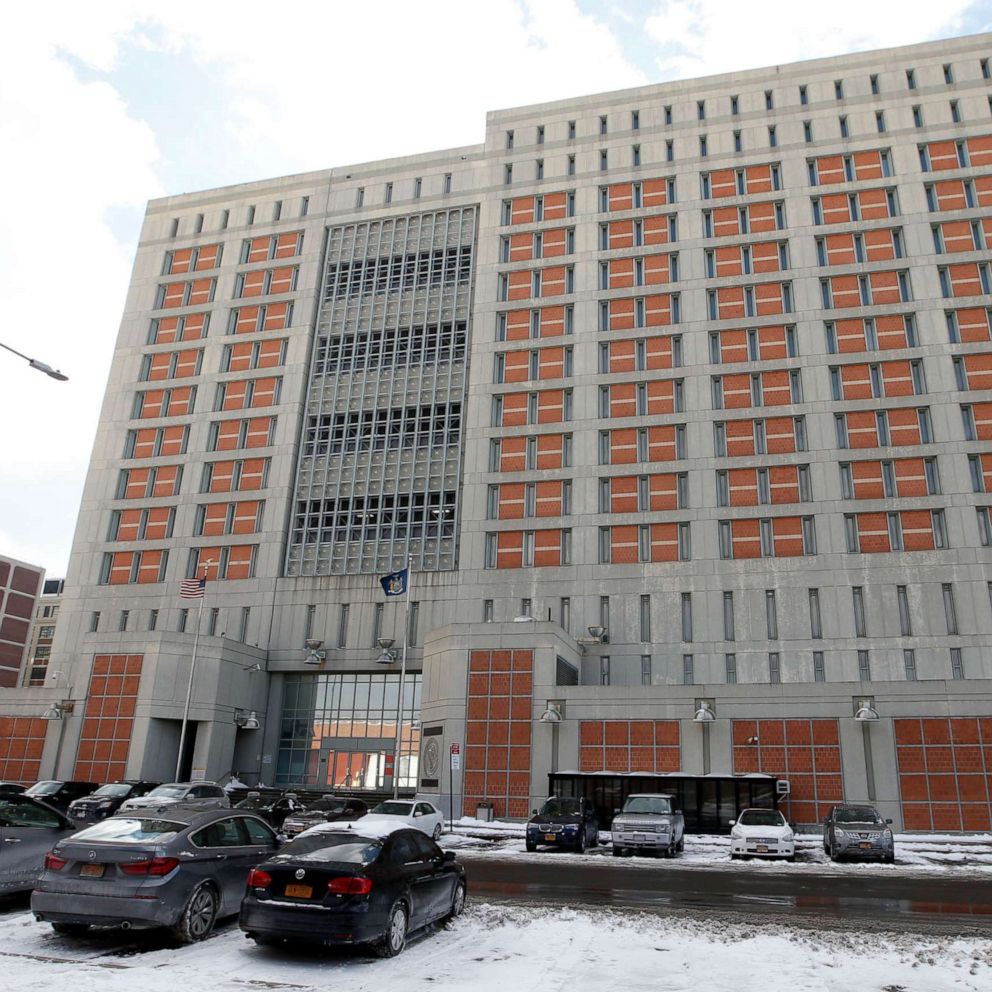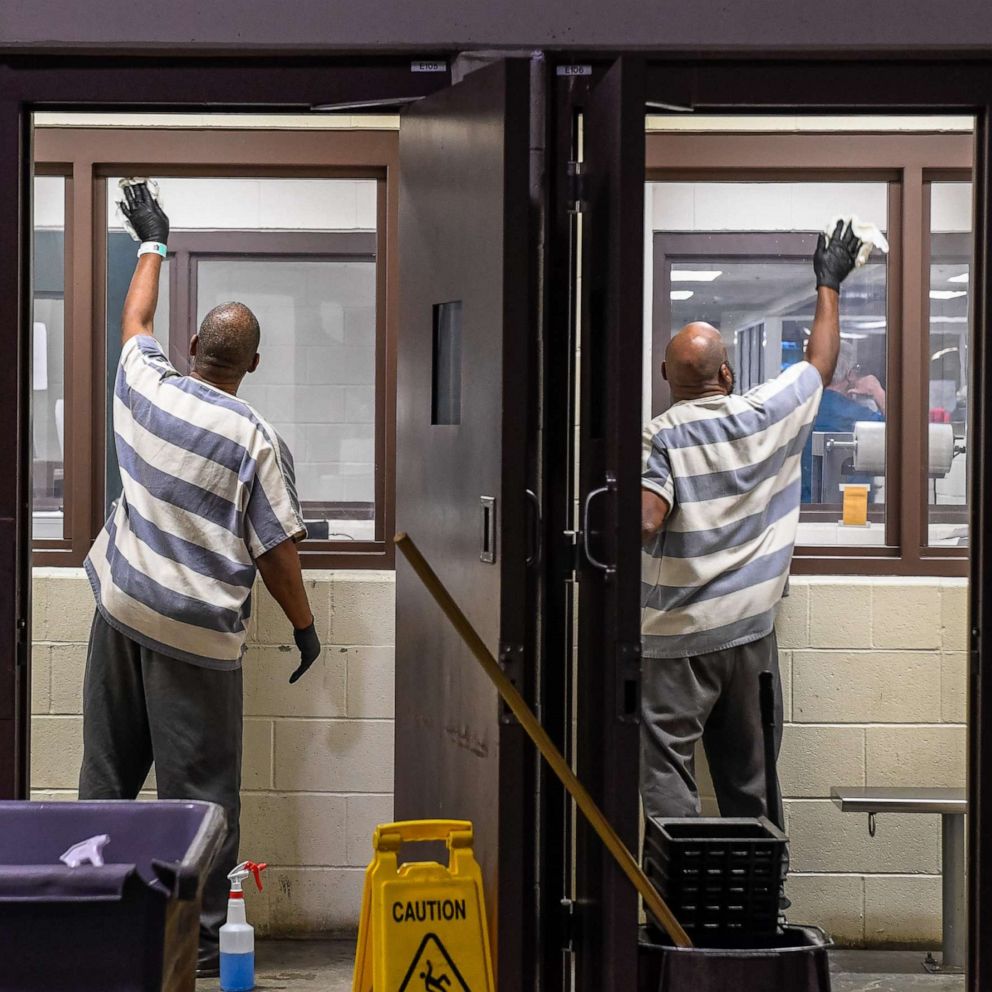DOJ clarifies federal inmate release guidance after confusion plagues process
The decision puts the status of some high profile inmates in question.
The Justice Department issued a clarification on Thursday regarding its policy on releasing certain inmates into home confinement amid the novel coronavirus crisis, after a series of conflicting messages sparked confusion and uncertainty among prisoners, attorneys and federal courts.
In a court filing with the Southern District of New York, federal prosecutors provided updated criteria that federal prisons would consider when assessing which inmates would be eligible.
"[Bureau of Prisons] is at this time prioritizing for consideration those inmates who either (1) have served 50% or more of their sentences, or (2) have 18 months or less remaining in their sentences and have served 25% or more of their sentences," the filing said. "As BOP processes the inmates eligible for home confinement under these criteria and learns more about the COVID-19 pandemic and its effect on BOP facilities, it is assessing whether and how to otherwise priority consideration."
Tune into ABC at 1 p.m. ET and ABC News Live at 4 p.m. ET every weekday for special coverage of the novel coronavirus with the full ABC News team, including the latest news, context and analysis.
The updated guidance means inmates will likely need to have served a significant portion of their sentence to be eligible for home confinement.
The filing was made in the case of former medical technology company owner Lewis Stahl, who was sentenced to 30 months in prison and had appealed for release to home confinement. The criteria states that inmates do not have to apply for release and BOP case managers are reviewing eligible candidates.
The latest guidance from the BOP followed conflicting signals coming from the Justice Department, which earlier this week told the BOP that it should not consider releasing inmates to home confinement who had not served at least 50% of their sentence.
Prior to that, BOP had evaluated inmates for release based on two separate memorandums issued by Attorney General William Barr on March 26 and April 3, which placed restrictions on violent and sex offenders, but made no explicit mention of the 50% time-served standard.
According to BOP, at least 1,440 inmates had been released to home confinement under those standards, as of Wednesday. Among them are several inmates who had served less than 50% of their total sentence, though the exact number is not clear as BOP has not provided detailed information on those who have been approved for home confinement.

DOJ's surprise decision to update its guidance this week, however, left multiple prisoners who believed they were about to be released stuck in limbo.
The confusion was reflected in the Wednesday court filing for Stahl, who is currently serving 30 months for tax fraud, but was told he was set for release until the new guidance from DOJ led prosecutors to reverse their decision.
"Mr. Stahl was enormously relieved to learn on April 20, 2020 that the U.S. Probation Offices had approved home confinement and that, in light of the Bureau of Prisons approval of home confinement, he would be leaving FCI Miami where he is at serious risk of contracting COVID-19 and becoming seriously ill," the filing from Stahl's attorney said. "It was devastating for him to learn, later the same day, that BOP had reversed its approval of his home confinement."
The Justice Department updated its guidance again on Wednesday, making clear it would give the BOP discretion in who it should consider for release and that those who were previously referred to home confinement who had served less than half their sentence will now be "expeditiously" transferred.
This affects approximately 200 inmates, according to a DOJ official.
It's not immediately clear whether high-profile inmates like former Trump campaign chairman Paul Manafort will be among the 200, however. Manafort, who requested an early release, is currently serving a seven-year sentence for bank and tax fraud stemming from his work related to Ukraine between 2006 and 2015.
Manafort has not served 50% of his sentence, which began last year.
Sources close to Manafort believed he would have a good chance of being released based on the initial guidance announced by Barr last month. A lawyer for Manafort said he has been self-quarantining in prison for three weeks now, a requirement for any prisoners who are granted release to home confinement.

Inmates, lawyers and officers who spoke to ABC News said such conflicting guidance is not only confusing, but in some cases potentially dangerous to certain prisoners' health.
One Bureau of Prisons source, who spoke on the condition of anonymity, told ABC News that riots could happen due to the confusion going on inside the agency.
In a memo obtained by ABC News dated April 22, the bureau said that moving forward it would prioritize inmates for home confinement who have served at least 50% of their sentences, but will also use discretion in how it considers individual cases.
The memo describes in detail why the bureau will use a case-by-case determination to decide who gets released due to COVID-19.
The confusion for lawyers, inmates and other BOP officials comes as judges around the country are exhibiting increasing frustration with how the government has handled COVID-19 outbreaks in certain prisons.
In response to a lawsuit filed by inmates at Federal Correctional Institution Elkton in Ohio -- a facility that has been ravaged by the diseases -- Judge James Gwin said that the lack of tests Elkton has provided inmates is a "debacle."
The union president who represents staff at the facility told ABC News that the prison received roughly 80 tests from the BOP for a facility that houses more than 1,900 inmates according to the BOP. Six inmates have died at FCI Elkton from the virus, according to the bureau.
Gwin ruled that hundreds of elderly and vulnerable inmates either be released or transferred as a result of worsening conditions in the prison, the first such order from a federal judge since the start of the crisis.
In a statement released by BOP on Thursday, the bureau said it has increased and expanded testing for all facilities.
"Next week the BOP will receive ten additional Abbott ID NOW instruments," according to the statement. "The deployment of these additional resources will be based on facility need to contain widespread transmission and the need for early, aggressive interventions required to slow transmission at facilities with a high number of at-risk inmates such as medical referral centers."
By contrast, a lawsuit brought by inmates in FCI Oakdale in Louisiana, a facility that has been among those hit the hardest by the pandemic, a federal judge said that it is not the courts' job to rule on who gets released.
"Such a designation and/or classification falls squarely within BOP's authority and outside the purview of this Court," Judge Terry Doughty wrote. "To rule otherwise would make this Court a de facto ‘super' warden of Oakdale."
Former Florida Democratic Congresswoman Corrine Brown, who was convicted of corruption in 2017, was released from prison on Wednesday and a source with direct knowledge of her case told ABC News she was released due to the pandemic.
The Bureau of Prisons has not responded to an ABC News request for comment.
What to know about coronavirus:
- How it started and how to protect yourself: Coronavirus explained
- What to do if you have symptoms: Coronavirus symptoms
- Tracking the spread in the U.S. and worldwide: Coronavirus map







